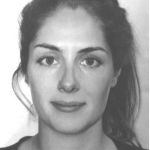Contact
Saxo-institute
Archaeology, Ethnology, Greek & L
Karen Blixensvej 4
2300 Copenhagen S
Denmark
Email:
jqm239@hum.ku.dk
Website:
http://saxoinstitute.ku.dk/
Further Information
Dissertation Project
“How many refugees can Europe accommodate?”, “How can Europe still be Europe if we do not help people fleeing war”? The current arrival of migrants and refugees to Europe trigger difficult discussions. On a concrete level, nation states in Europe must decide how many refugees each nation state are willing and capable of welcoming, and to what extent and level European states should cooperate on these issues. On an abstract level, questions such as how open Europe wants to be, and how Europe perceives its role in the world emerge.
This PhD project is about these both abstract and concrete discussions. By directing the attention to everyday practices of migration management, the project aims to contribute to studies of political imaginaries and discussions of European cooperation.
According to contemporary migration scholars, the current state of migration management can be referred to as a “migration industry” (cf. Gammeltoft-Hansen & Nyberg-Sørensen (ed.) 2012, Anderson 2014) or a “border regime” (cf. Hess (ed.) 2010), in which a range of diverse actors are involved in creating and handling the current conditions for refugees and migrants travelling to Europe: politicians, state authorities, NGOs, private security companies, airlines, migrants, human smugglers, to mention but a few. These scholars investigate how this diverse group of actors all takes part in creating, sustaining and reproducing migration as a global phenomenon. They do so by showing how different actors cooperate, and by stressing the relationship between private and public actors. Further, they question how privatization of migration management affects central aspects such as the protection of law, state responsibility and transparency.
In this project, I follow the abovementioned approaches to studying migration management, however I take a different point of departure: Instead of tracing the diverse actors involved in migration management, I zoom in on one specific kind of actor, namely the state’s border control agents, such as national police authorities and border guards, and rather than focusing on how states cooperate with private actors, i.e. on outsourcing and privatization processes, I focus on cooperation between EU member state’s national police authorities, exploring in which ways control practices transform when they are no longer a national, but a European matter. In other words, rather than a privatization process, I explore an Europeanization of migration management.
In order to discuss such a Europeanization of migration management among state border control agents, the PhD project explores everyday practices of border control on the basis of empirical material such as interviews with border control agents, analysis of training manuals, common curricula and forms, and official policy reports. In other words, by studying how standards for EU border control materialize in training of border guards, risk analysis strategies, border technology and cooperation initiatives, the project aims to identify ideals of “good borders” embedded in the everyday practices of the EU border control system.
In additional to exploring how Europe as a political entity and imaginary is negotiated at its borders, an objective of the project is to contribute to the conceptual and methodological development of the field of migration and borders studies by introducing cultural analytical approaches.
Supervisor: Marie Sandberg (Associate Professor, Saxo Institute, University of Copenhagen)


